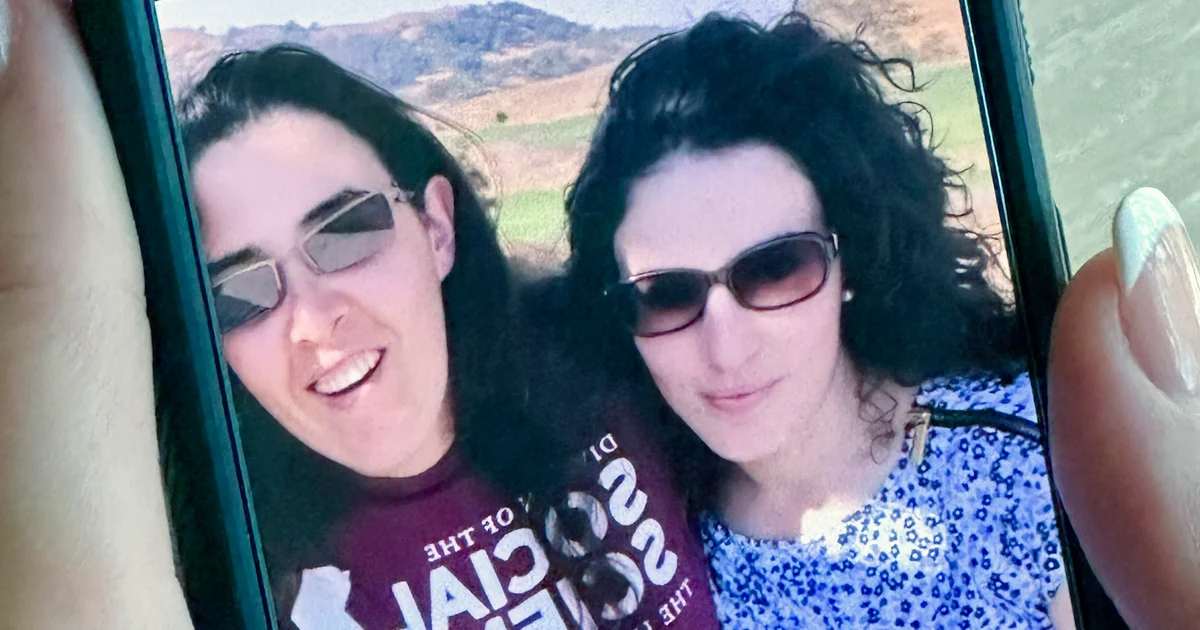In a moment that has drawn global attention and ignited discussions about international diplomacy, hostage negotiations, and the risks faced by foreign nationals abroad, a Princeton University graduate student has been released after enduring over 900 days in captivity in Iraq. Former U.S. President Donald Trump confirmed the news, marking the end of a long and uncertain ordeal for the student, their family, and the academic community. The release comes against the backdrop of ongoing tensions in the Middle East, debates over U.S. foreign policy, and broader concerns about the safety of researchers, journalists, and aid workers operating in conflict zones. This story is not only about survival but also about geopolitics, resilience, and the complex interplay of diplomacy and human rights in some of the world’s most volatile regions.
- The Long Ordeal of Captivity
- Trump’s Announcement and Political Significance
- The Role of Diplomacy in the Release
- Impact on the Academic and Humanitarian Community
- Lessons on Global Security Risks
- Family Resilience and Advocacy
- Global Reactions and Media Coverage
- The Broader Debate on U.S. Hostage Policy
- What Comes Next for the Released Student
- Frequently Asked Questions (FAQs)
- Who was the Princeton graduate student held in Iraq?
- How long was the student held captive?
- How was the release negotiated?
- What role did Donald Trump play in the release?
- What risks do researchers face in conflict zones?
- What happens after a hostage is freed?
- Conclusion
The Long Ordeal of Captivity
The student, whose name had been at the center of international headlines since their abduction, was conducting academic field research in Iraq when they were seized by an armed group. What began as a promising journey to gather valuable insights into the region’s culture and politics soon spiraled into a nightmare of uncertainty. For over 900 days—nearly three years—the graduate student remained in captivity, cut off from the outside world, as their family campaigned tirelessly for their safe return.
Accounts of similar detentions in Iraq highlight the extreme challenges hostages face, including isolation, limited access to communication, and uncertainty over whether they will ever be freed. The release of this student is therefore not only a relief to their loved ones but also a rare diplomatic victory in a region where foreign nationals have often found themselves caught in the crossfire of militia rivalries and geopolitical tensions.
Trump’s Announcement and Political Significance
Donald Trump confirmed the release in a statement that highlighted the importance of American strength in protecting its citizens abroad. “This was a long and difficult journey, but today we can finally welcome home an American who was unjustly held for far too long,” Trump said, emphasizing that the U.S. government must always stand firm against wrongful detentions.
The announcement carries weight not only as a humanitarian victory but also as a symbolic moment in the broader conversation about how the United States handles hostage situations. Previous administrations have faced criticism for either negotiating too softly or refusing to engage at all, leading to mixed outcomes for Americans detained overseas. Trump’s framing of this release as a triumph underscores his broader political messaging on projecting strength and securing justice for U.S. citizens wrongfully held abroad.
The Role of Diplomacy in the Release
Behind the public announcement lay years of delicate diplomatic maneuvering. Negotiations for hostage releases often involve multiple layers of actors, including the host country’s government, militia groups, international intermediaries, and humanitarian organizations. In Iraq, where power is fragmented and militias often act independently of formal authorities, such negotiations become even more complex.
Analysts note that the successful release may have involved both direct and indirect channels, with regional allies likely playing a role in mediating communication between U.S. officials and local groups. While the U.S. government rarely discloses the details of such arrangements, it is widely understood that concessions—whether financial, political, or symbolic—are often part of the equation.
Experts in hostage negotiations have long debated whether concessions incentivize further kidnappings. However, in situations where a life hangs in the balance, governments are often forced to balance moral principles with urgent humanitarian needs.
Impact on the Academic and Humanitarian Community
The case of the Princeton graduate student has resonated far beyond political circles. For universities and researchers, it is a stark reminder of the risks inherent in conducting fieldwork in unstable regions. Princeton University issued a statement expressing relief and gratitude, while also acknowledging the profound toll such detentions take on academic freedom.
Humanitarian organizations have voiced similar concerns, pointing out that aid workers and researchers are increasingly vulnerable in conflict zones. According to international watchdog groups, at least 120 foreign nationals are believed to be detained or missing in Iraq and Syria, many of them journalists, aid workers, or academics. The release of the Princeton student therefore serves as both a moment of celebration and a sobering reminder of ongoing dangers.
Lessons on Global Security Risks
The ordeal highlights a growing trend of hostage-taking being used as a tool of leverage by armed groups. In regions where government authority is weak, kidnapping has become a common tactic for exerting pressure on foreign powers. Reports from international security agencies suggest that wrongful detentions of foreign nationals have risen by nearly 30 percent over the past decade, with Iraq, Syria, and Yemen among the most affected areas.
For Americans and other Westerners traveling abroad, the incident underscores the importance of precautionary measures and awareness. The U.S. State Department regularly issues travel advisories for regions considered high risk, yet cases like this show that even with warnings, individuals working in the field for academic or humanitarian purposes continue to face exposure to danger.
Family Resilience and Advocacy
Behind every case of wrongful detention lies a family struggling with uncertainty, fear, and the long wait for resolution. The family of the Princeton graduate student became active advocates for their loved one’s release, working closely with advocacy groups and government officials to keep the case in the public eye. Their persistence reflects a broader truth: public pressure and awareness can often play a role in keeping wrongful detentions from being forgotten.
In interviews, families of past hostages have emphasized the psychological toll of prolonged captivity—not just on the detainee but also on their loved ones. The emotional rollercoaster of hope and despair can be overwhelming, yet advocacy often provides a sense of purpose. In this case, the family’s unwavering efforts are now met with relief, though the long-term impact of such an ordeal will likely linger.
Global Reactions and Media Coverage
News of the release quickly spread across international media, with headlines framing it as both a diplomatic success and a humanitarian relief. Leaders from European and Middle Eastern countries welcomed the news, while human rights organizations used the moment to call for more systemic efforts to prevent wrongful detentions worldwide.
International analysts pointed out that this case highlights the ongoing vulnerability of Western citizens in Iraq, even years after the height of the U.S. military presence in the country. While Iraq has made progress toward political stabilization, the influence of armed groups and militias continues to pose a challenge to foreign nationals and local civilians alike.
The Broader Debate on U.S. Hostage Policy
The release of the Princeton graduate student has reignited debates about U.S. policy toward hostages abroad. Traditionally, U.S. administrations have maintained a strict “no ransom” policy, arguing that paying ransom encourages further abductions. However, in practice, exceptions have often been made, with indirect negotiations leading to the exchange of concessions.
Critics of the U.S. approach argue that the lack of transparency in these cases can create confusion and mistrust, while advocates for a firmer stance insist that refusing to negotiate is the only way to discourage kidnappers in the long term. The reality, as demonstrated by this case, is that every hostage situation is unique, and governments are often forced to make pragmatic decisions under pressure.
What Comes Next for the Released Student
Now that the ordeal has come to an end, the Princeton graduate student faces a long road to recovery. Former hostages often experience lasting psychological effects, including post-traumatic stress, anxiety, and depression. Support from family, friends, and professionals will play a crucial role in helping them rebuild their life.
Academically, the student’s research and studies were interrupted for years, raising questions about whether they will continue their work or pursue a new path. For the university, the case serves as a catalyst for reviewing how institutions prepare and protect their researchers when conducting fieldwork in high-risk environments.
Frequently Asked Questions (FAQs)
Who was the Princeton graduate student held in Iraq?
The individual was a graduate student from Princeton University conducting academic field research in Iraq when they were abducted by an armed group. Their name has been withheld in some reports for privacy and security reasons.
How long was the student held captive?
The student endured more than 900 days in captivity, a period of nearly three years.
How was the release negotiated?
While official details remain confidential, experts believe that the release involved delicate negotiations between U.S. officials, regional allies, and possibly intermediaries within Iraq.
What role did Donald Trump play in the release?
Donald Trump confirmed the release and highlighted it as a diplomatic success, framing it as an example of American strength in protecting its citizens abroad.
What risks do researchers face in conflict zones?
Academics, journalists, and aid workers are particularly vulnerable in unstable regions. Risks include kidnapping, wrongful detention, and violence from armed groups seeking leverage.
What happens after a hostage is freed?
Former hostages often face physical and psychological challenges as they reintegrate into normal life. Support systems, therapy, and family care are critical in helping them recover.
Conclusion
The release of the Princeton graduate student after more than 900 days in Iraqi captivity is a story of survival, resilience, and the complexities of international diplomacy. It highlights the human cost of global conflict and the dangers faced by those who dedicate their lives to academic and humanitarian pursuits in unstable regions. While Donald Trump’s confirmation of the release marks a moment of relief and triumph, it also reignites important debates about U.S. hostage policy, global security risks, and the responsibility of governments to protect their citizens abroad.
For the family, the academic community, and advocates who fought tirelessly for this outcome, the moment is bittersweet—relief at a safe return, coupled with awareness of the lasting scars such an ordeal leaves behind. Ultimately, this case serves as both a warning and a call to action: a reminder that in a world marked by conflict and instability, safeguarding human lives must remain at the forefront of international policy and practice.








